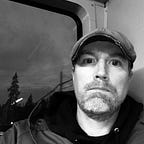Human Rights Case Proceeding Against 12-Step Addiction Facilities & BC Government
The British Columbia Human Rights Tribunal has allowed my complaint to proceed against the Province of BC, Health Authorities and eleven of twenty-six residential Addiction Facilities that refused to provide me services unless I participated in religious 12-step and or Christian programming.
My allegation of religious discrimination is similar to the complaint I made against my former employer, for requiring me to attend 12-step meetings as a condition of continued employment. That case reached a settlement agreement stipulating that Vancouver Coastal Health employees diagnosed with Substance Use Disorder do not have to attend 12-step programs as part of a workplace treatment & monitoring contract if that approach to treatment conflicts with their religious or non-religious beliefs .
Until now the BC government has failed to address religious coercion in addiction facilities in the province.
In 2016 a CBC investigation found that the majority of residential addiction facilities in BC adhere to religious Alcoholics Anonymous or 12-step regimes. The CBC journalists described some facilities as “faith-based, cold turkey boot camps.”
That same year, at a public hearing for the BC Legislature’s Standing Committee on Health, the BC Humanist Association (BCHA) advised the government that they have a duty to religious neutrality and should therefore ensure that all addiction facilities offer non-religious / non-12-step options. The government did not follow the BCHA’s recommendations.
In 2018 the BC Coroner advised the government to set and enforce treatment standards for all addiction facilities in the province. That was another opportunity for the government to develop regulation requiring addiction facilities to offer non-religious options. However, two years after the coroner’s deadline, the government still has not developed the suggested system of regulation.
When the Ministry of Mental Health & Addictions asked for public input to create a Mental Health and Addictions Strategy for the province, the BCHA once again recommended that the government stop funding religious 12-step facilities and ensure that all addiction facilities offer non-religious options.
The government did not listen, and continues to fund 12-step addiction facilities. In 2021 the service group that received the largest chunk of government funding, was the Salvation Army Harbour Light, a Christian organization that includes compulsory 12-step programming for all patients.
Compulsory 12-step programming at addiction facilities creates a barrier to treatment for the 20% of British Columbians who do not believe in a “Higher Power”, as well as anyone else who’s personal belief systems do not align with 12-step doctrine.
The Respondents to my human rights complaint- the BC government, Health Authorities and Addiction Facilities- have filed responses denying that they discriminated against me, arguing that the 12-steps are not religious. Their argument flies in the face of seminal First Amendment cases in the U.S.A. that have held 12-step programs to be religious as a matter of law.
It is now up to the BC Human Rights Tribunal to decide whether the Addiction Facilities are violating the Human Rights Code with their compulsory 12-step programming, and whether the Government is violating the Human Rights Code by overseeing and funding addiction facilities whose services are supposed to be available to the general public, but I cannot access, because I am an Atheist.
If my complaint is successful, the Tribunal has the power to force the Respondents to make policy changes that would put a stop to the alleged discrimination.
If you know a lawyer that can take on my case pro-bono, please contact me. I have been self-represented up until this point.
